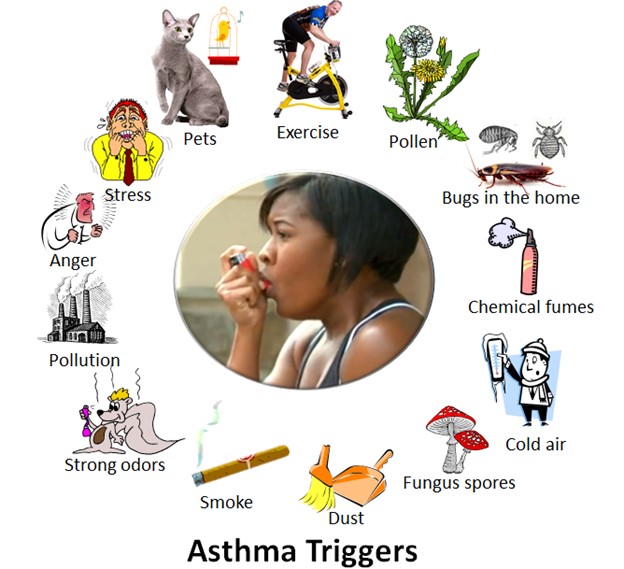Adult Asthma: Warning Signs That Are Often Missed
Adult asthma is often underdiagnosed because its warning signs can be subtle and easily mistaken for aging, stress, or poor fitness. While asthma is commonly associated with childhood, many Canadians develop asthma for the first time in adulthood, sometimes without classic symptoms like wheezing.
Symptoms such as a persistent cough, chest tightness, and sleep disturbances are red flags that are frequently overlooked during routine assessments.
Asthma remains one of the leading causes of emergency department visits in Canada each year, but with proper diagnosis, medication adherence, and lifestyle management, most adults can keep their symptoms well controlled and avoid emergencies.
Common Triggers of Adult-Onset Asthma
Adult asthma is often triggered by a combination of environmental and health-related factors, including:
-
Irritants such as cigarette smoke, vaping aerosols, air fresheners, perfumes, and industrial chemicals
-
Respiratory infections like pneumonia, bronchitis, or chronic sinus infections
-
Airborne allergens including dust, pollen, pet dander, and mold
-
Cold air and weather changes, particularly common in Canadian winters
-
Non-respiratory factors such as obesity, emotional stress, and hormonal changes
Women are more likely than men to develop adult-onset asthma, particularly during or after hormonal shifts.
Why Adult Asthma Is Often Missed
Starting in the 30s, gradual age-related muscle loss can affect respiratory muscles as well. This leads many adults to dismiss early asthma symptoms as “just getting older.”
Warning signs that should not be ignored include:
-
Becoming short of breath after a short walk
-
Difficulty breathing while doing routine chores
-
Symptoms worsening in cold air or around pets, dust, or fumes
-
Breathing problems that wake you at night
-
Ongoing cough without a clear cause
These are not normal signs of aging and warrant medical evaluation.
Diagnosis and Management
If adult asthma is suspected, a physician may order lung function tests and review symptom patterns. Once diagnosed, it is essential to develop an asthma action plan with a healthcare provider.
Key management strategies include:
-
Using daily controller medications exactly as prescribed
-
Knowing when and how to use rescue inhalers
-
Avoiding known triggers whenever possible
-
Monitoring symptoms and peak flow if advised
Adults are statistically more likely to become inconsistent with their asthma treatment, which increases the risk of severe asthma attacks and emergency department visits.
Lifestyle Measures That Support Lung Health
In addition to medications, lifestyle changes play an important role:
-
Follow a diet rich in vegetables, fruits, whole grains, and omega-3 fatty acids
-
Maintain a healthy weight
-
Engage in regular physical activity, such as a daily 30-minute walk
-
Avoid smoking and second-hand smoke
These measures strengthen the body’s anti-inflammatory and antioxidant defenses, helping to protect lung function.
First Aid Training Relevance in Canada
Severe asthma attacks are classified as breathing emergencies in Canadian first aid standards. Knowing when and how to respond—especially when symptoms escalate rapidly—can be lifesaving.
First aid training teaches:
-
Recognition of worsening asthma symptoms
Integrated Canadian Disclaimer
Important Educational Notice (Canada):
This content is intended for educational purposes only and does not replace professional medical advice, diagnosis, or treatment. Asthma attacks can become life-threatening. Canadian first aid courses focus on early recognition, proper response, and timely activation of emergency medical services.

